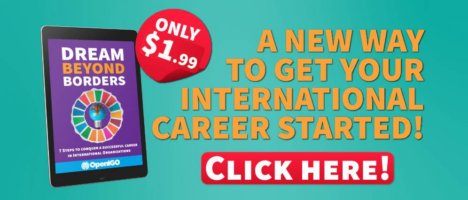Find out everything about Jobs and Careers with the WHO!
Working for an organization such as the World Health Organization (WHO) is an opportunity that could change your life. The organization combines good remuneration with meaningful work that can help millions of people improve their quality of life. You will be able to construct influential networks as well as receive encouragement to develop professionally. In addition, working for the WHO means having a global career with a global reach, in a multicultural and pleasant environment.
Because of the above-mentioned reasons, in addition to a competitive remuneration package, career mobility, and the support that successful candidates receive once they are assigned to a position at the organization, WHO Jobs selection processes are highly sought-after by many young professionals, making them highly competitive.
In pursuit of its mission, the OpenIGO network has prepared a comprehensive eBook (Landing your dream job at the United Nations), as well as support and guidance services, with the aim of highly increasing your chances of success in these competitive selection processes. These services include revising your application documents (curriculum vitae/resume and cover letter) and a mock interview, as per the United Nations model. We also offer a range of packages that combine the eBook with different services!
WOULD YOU LIKE TO KNOW MORE ABOUT OUR UN JOBS PRODUCTS & SERVICES?







